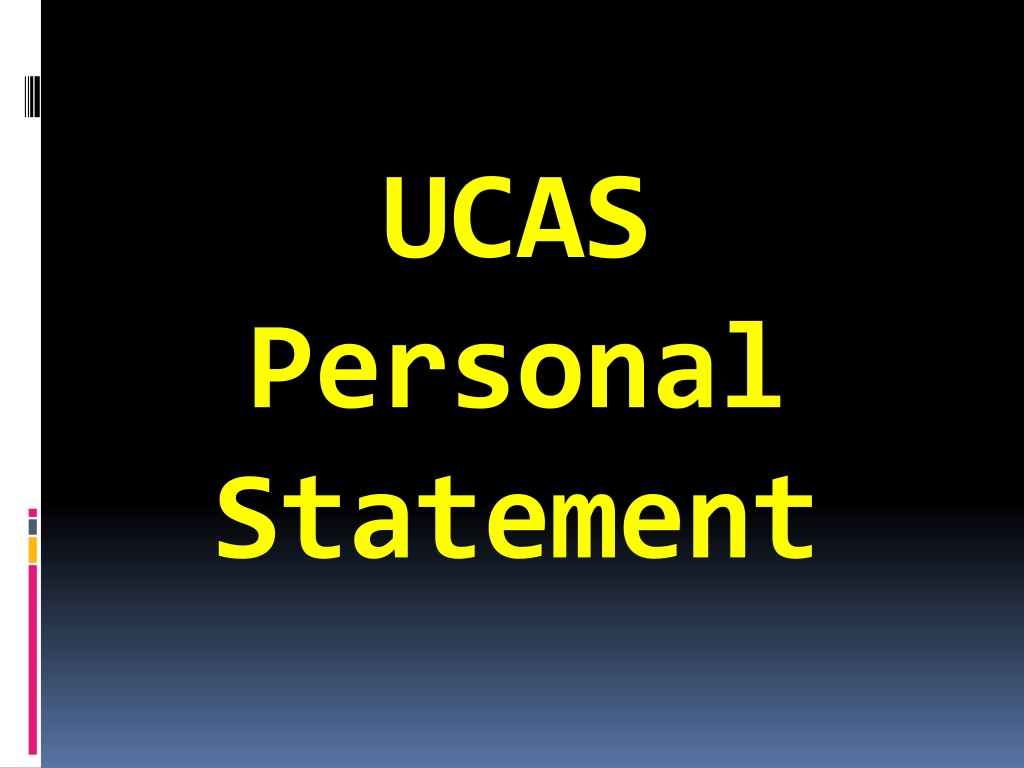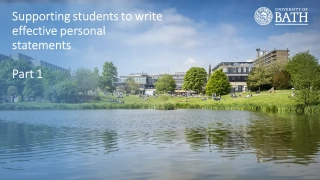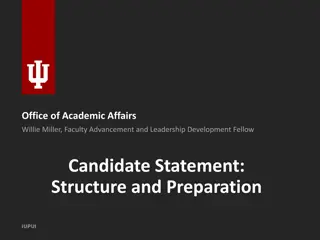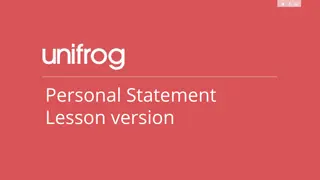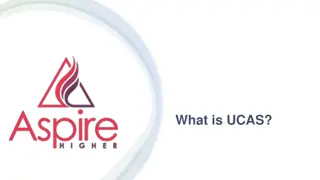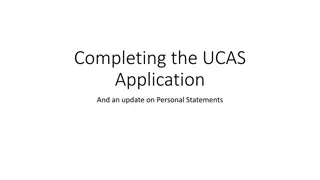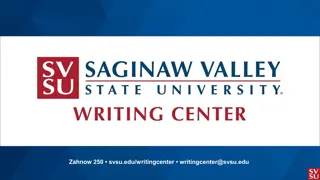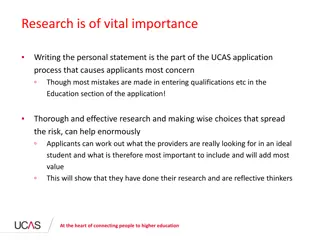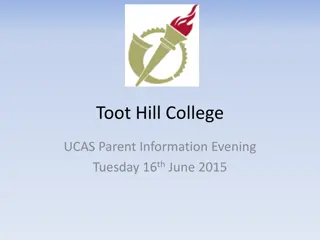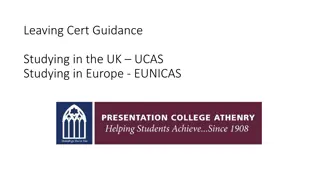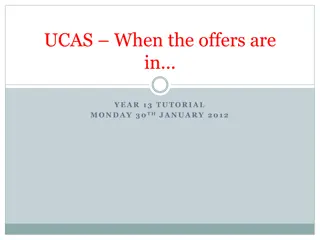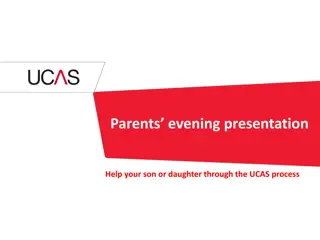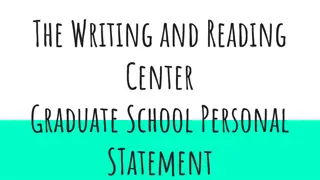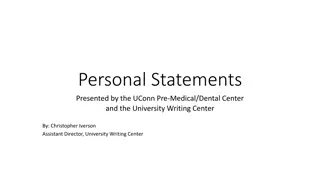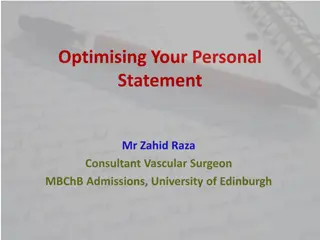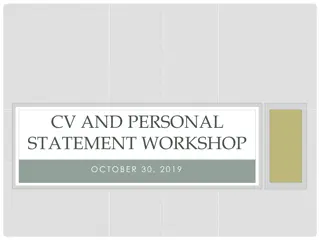Crafting a Compelling UCAS Personal Statement
Crafting a standout UCAS personal statement is crucial for your university application. With 4000 characters at your disposal, demonstrate your passion and skills through structured sections like introduction, in-school evidence, and outside-school experiences. Tailor each section to showcase why you're the ideal candidate for your chosen course. Utilize engaging storytelling and thoughtful connections to strengthen your case.
Download Presentation

Please find below an Image/Link to download the presentation.
The content on the website is provided AS IS for your information and personal use only. It may not be sold, licensed, or shared on other websites without obtaining consent from the author. Download presentation by click this link. If you encounter any issues during the download, it is possible that the publisher has removed the file from their server.
E N D
Presentation Transcript
UCAS Personal Statement
Your personal statement is an important part of your application and it is worth spending a lot of time on it. You have 4000 characters (about 47 lines of text) to show admissions tutors why they should pick you over other candidates.
Suggested Structure Introduction In-school evidence of your interest in the subject Outside-school evidence of your passion for the subject Wider skills you have developed Summary of why they should pick you
Introduction You will need to provide a brief but convincing explanation as to why you want to study your subject at university Think of the personal trigger that got you interested This could be a book, a trip, a documentary, a film, a teacher, an inspirational mentor, work experience etc Go on to develop why the subject is important to you and to society (can you relate it to current affairs) Don t just say you love the subject What and why are you really looking forward to studying this subject at university. Read the course prospectuses for all of the universities you are applying too (key terms and words).
Introduction Should you start with a quote? This is only acceptable if you directly relate it to your course and why you want to study it, show that you fully understand the concept of the quote and make it flow neatly into your introductory paragraph.
In-school Evidence A brief to demonstrate what you have been doing in school to develop your interest (no more than 2 or 3 sentences) How do your A-Levels relate to the course you want to study If you are planning to study a completely new course that you have not studied at A-Level, what skills have you developed that will be useful in your degree, such as essay-writing, critical analysis, research or logic
Outside-school Evidence This is where you can really shine because it is the things that you do in your own time which will show a genuine passion for the subject What extra-curricular activities have you undertaken in pursuit of a greater understanding of your chosen degree What trips, books, documentaries, research or experiences have you found inspiring and why How have these inspirations made your more suitable for your chosen course Go into detail about what you have discovered beyond yourA- Levels and how it has inspired you to want to study the subject at degree level Have you undertaken any work experience related to the course and what skills has this helped you develop (for example analysis, problem-solving and forward planning)
Outside-school Evidence Can you show that you are self motivated, an independent learner and therefore suited to university life Admission tutors are looking for students who are willing to read around the subject in their own time Check out the reading lists on the university websites (there is usually a list of suggested books for undergraduates) Be honest about the things you have done (especially if you are invited for an interview) If you have a definite idea of what you want to do after university make sure you include this
Wider Skills What are your non-academic achievements and skills either in or out of school and your interests and hobbies Give the admissions tutor a glimpse of the kind of person you are outside of the classroom and more importantly what skills you have developed
Examples of Key Skills Communication Commitment Time management Teamwork Initiative Public speaking Responsibility Adaptability Organisation Leadership Research & analysis
Gap Year If you are planning on taking a gap year and applying for deferred entry then you must explain what you plan to do Let the admissions tutor know about your plans as this shows that you are organised and want to pursue interests outside of your studies Explain how you will fund the gap year State what you aim to achieve through a gap year If you can relate your gap year to the course or university life even better!
Summary Finish the personal statement with a one or two line summary of why you want to go to university and study the course and why you deserve to be offered a place.
